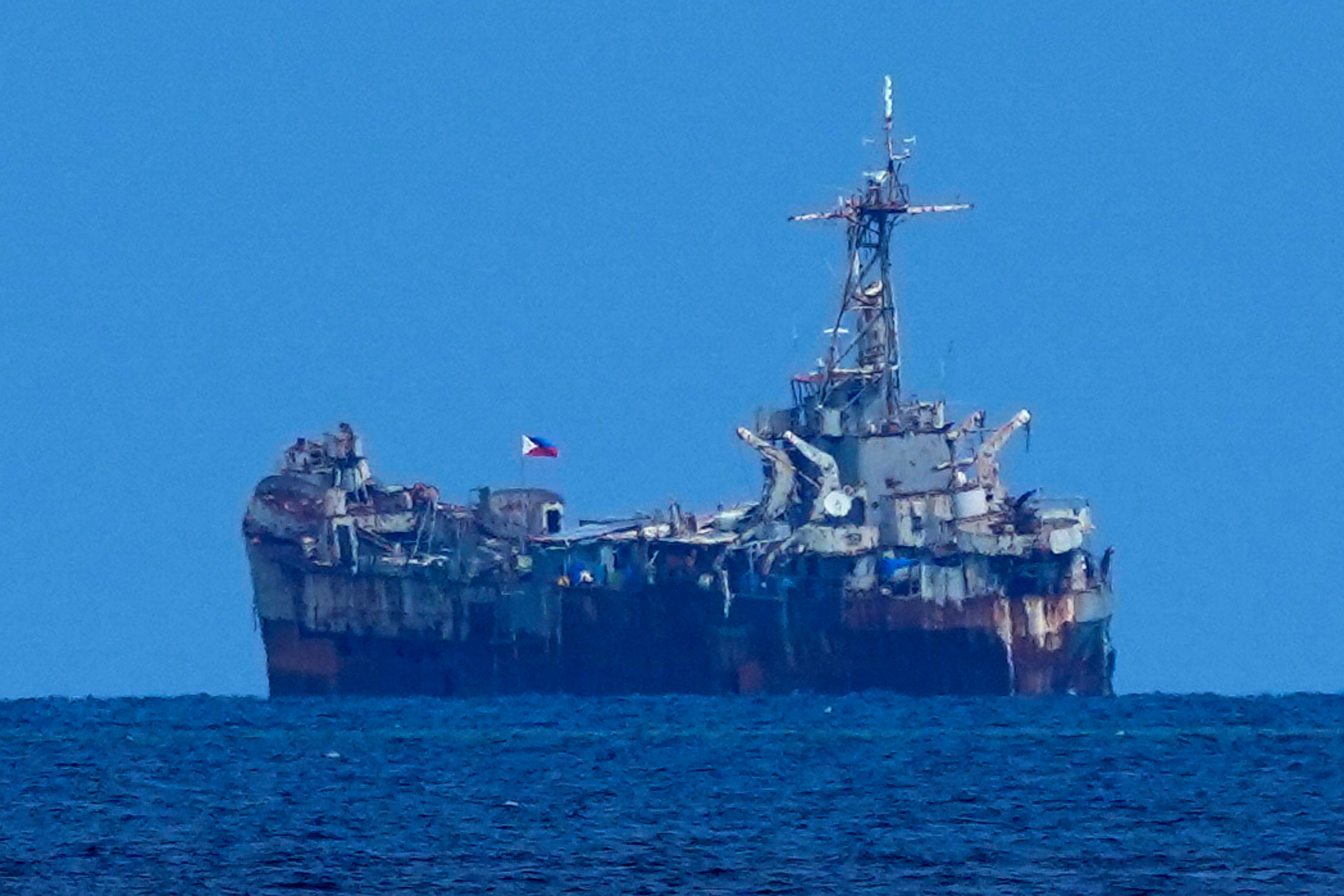Chinese and Philippine forces again avoid a clash in a fiercely disputed shoal under a rare deal
The Philippine navy has transported food and other supplies to a territorial ship outpost in a shoal in the South China Sea without any confrontation with Chinese forces guarding the area

Your support helps us to tell the story
From reproductive rights to climate change to Big Tech, The Independent is on the ground when the story is developing. Whether it's investigating the financials of Elon Musk's pro-Trump PAC or producing our latest documentary, 'The A Word', which shines a light on the American women fighting for reproductive rights, we know how important it is to parse out the facts from the messaging.
At such a critical moment in US history, we need reporters on the ground. Your donation allows us to keep sending journalists to speak to both sides of the story.
The Independent is trusted by Americans across the entire political spectrum. And unlike many other quality news outlets, we choose not to lock Americans out of our reporting and analysis with paywalls. We believe quality journalism should be available to everyone, paid for by those who can afford it.
Your support makes all the difference.The Philippine navy transported food and other supplies to a territorial ship outpost in a shoal in the South China Sea without any confrontation with Chinese forces guarding the disputed area, officials said Friday.
The Philippine delivery of supplies and military personnel on Thursday to the Second Thomas Shoal was the third such trip that did not lead to any confrontation since July, when both sides signed a rare deal to stop an alarming spike in violent confrontations.
“The Armed Forces of the Philippines continues to uphold its mandate of safeguarding Philippine sovereignty and ensuring the welfare of its stationed personnel in the West Philippine Sea,” military spokesperson Col. Xerxes Trinidad said, using the Philippine name for the South China Sea.
“There were no untoward incidents during the mission,” Trinidad said.
The Philippines occupied the shoal by permanently beaching a navy ship in its shallows in 1999, prompting China, which also claims it, to surround the atoll with its coast guard and naval forces in what has been a continuing territorial standoff.
Called Ayungin by the Philippines and Ren’ai Jiao by China, the shoal had been the most dangerous flashpoint in the South China Sea and became the scene of increasingly violent confrontations starting last year that alarmed other governments, led by the United States.
The deal, which has not been made public, outlines a temporary arrangement that lets the Philippines transport supplies and fresh batches of Filipino forces to Manila's ship outpost without clashing with China’s coast guard, navy and suspected militia ships guarding the shoal.
Neither side conceded its territorial claims under the deal, which only applies to the Second Thomas Shoal, according to Philippine officials.
The agreement was reached after China agreed to drop a demand for the Philippines to notify China in advance of any trip to the shoal and for Chinese forces to board Philippine supply vessels for inspection, two Philippine officials told The Associated Press in July. They spoke on condition of anonymity for lack of authority to discuss the negotiations publicly.
It’s the first known agreement by China with any one rival claimant country over a specific shoal in the South China Sea, which Beijing claims almost in its entirety.
Before the deal was reached, Chinese coast guard and navy forces had used powerful water cannons and dangerous blocking maneuvers to prevent Philippine supply vessels from reaching Manila’s fragile outpost at the shoal — the long-grounded and rusting warship, the BRP Sierra Madre.
In the worst confrontation, Chinese forces on speedboats repeatedly rammed and then boarded two Philippine navy boats on June 17 to prevent Filipino personnel from transferring food and other supplies including firearms to the BRP Sierra Madre, the Philippine military said.
The Chinese forces seized the Philippine navy boats and damaged them with machetes and improvised spears. They also seized seven M4 rifles, which were packed in cases, and other supplies in a chaotic faceoff that wounded several Filipino navy personnel. The assault was captured in video and photos that were later made public by Philippine officials.
China and the Philippines blamed each other for the confrontation. The United States, Japan and Australia were among those who condemned the Chinese actions at the shoal.
While clashes have stopped at the Second Thomas Shoal, sporadic confrontations have continued elsewhere in the South China Sea. Vietnam, Malaysia, Brunei, Taiwan and, at times, Indonesia, have also been involved in the long-seething territorial disputes in the busy waterway.